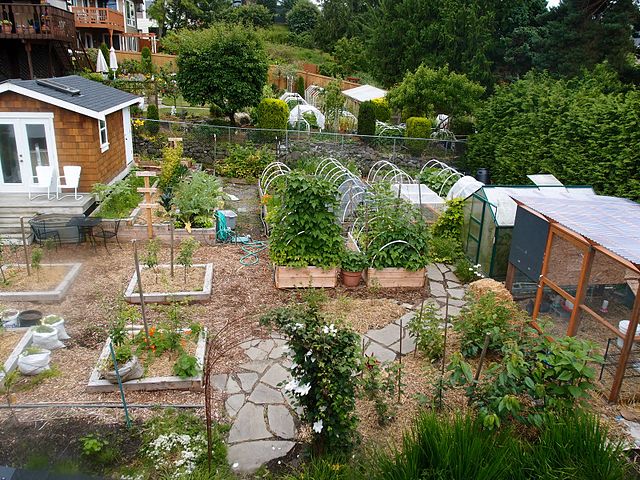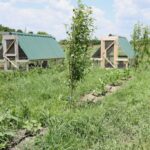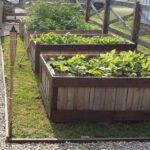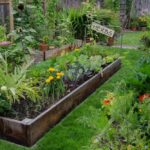In recent years, the concept of urban homesteading has gained significant popularity among city dwellers. The growing desire to become more self-sufficient and live sustainably has led many to explore the world of urban homesteading. If you’re new to this lifestyle, our guide to urban homesteading for beginners is the perfect starting point. Whether you’re dreaming of growing your own food or reducing your carbon footprint, you’ll find valuable insights here.

What is Urban Homesteading?
Urban homesteading involves adopting a lifestyle focused on self-sufficiency and sustainability within urban settings. It typically includes practices such as gardening, raising small livestock, and reducing waste. The goal is to create a more sustainable and self-reliant way of living, even in the heart of a bustling city.
Why Choose Urban Homesteading?
Many people are drawn to urban homesteading for various reasons. Some seek to reduce their environmental impact, while others aim to save money by producing their own food and goods. Additionally, urban homesteading can provide a sense of fulfillment and connection to nature, even in an urban environment.
Benefits of Urban Homesteading
- Increased self-sufficiency
- Reduced environmental footprint
- Cost savings
- Improved health and well-being
- Stronger community connections
Getting Started with Urban Homesteading
Starting your urban homesteading journey requires some planning and preparation. Here are essential steps to help you get started:
1. Assess Your Space
Begin by evaluating the available space in your home or yard. Urban homesteading can be adapted to fit small apartments, balconies, or larger backyards. Consider how much space you can dedicate to gardening, composting, or raising small animals.
2. Set Your Goals
Define what you hope to achieve through urban homesteading. Do you want to grow your own vegetables, reduce waste, or raise chickens for fresh eggs? Setting clear goals will help you stay focused and motivated.
3. Start Small
It’s essential to start small and gradually expand your homesteading efforts. Begin with a small vegetable garden or a few potted herbs. As you gain experience and confidence, you can take on more ambitious projects.
Urban Gardening
Urban gardening is a fundamental aspect of urban homesteading. It involves growing plants and vegetables in limited spaces, such as balconies, rooftops, or small yards. Here are some tips to get you started:
Container Gardening
Container gardening is an excellent option for those with limited outdoor space. You can grow a variety of plants in pots or containers, including herbs, tomatoes, peppers, and lettuce. Make sure to use high-quality potting soil and provide adequate sunlight and water.
Vertical Gardening
If you’re short on horizontal space, consider vertical gardening. This technique involves growing plants upward using trellises, wall-mounted planters, or hanging baskets. Vertical gardening is ideal for growing vining plants like beans, cucumbers, and strawberries.
Composting
Composting is a crucial component of urban homesteading, as it allows you to recycle kitchen scraps and yard waste into nutrient-rich soil. Here’s how to get started with composting:
Choosing a Composting Method
There are several composting methods to choose from, including traditional compost bins, worm composting (vermicomposting), and bokashi composting. Each method has its advantages, so select one that suits your space and needs.
Building Your Compost Pile
To create a successful compost pile, layer green materials (such as kitchen scraps and grass clippings) with brown materials (such as leaves and cardboard). Turn the pile regularly to aerate it, and ensure it remains moist but not waterlogged.
Raising Small Livestock
Raising small livestock, like chickens or rabbits, is another aspect of urban homesteading that can enhance your self-sufficiency. Before starting, check local regulations and ensure you have enough space and resources.
Raising Chickens
Chickens are a popular choice for urban homesteaders, as they provide fresh eggs and natural pest control. You’ll need a secure coop, access to food and water, and a safe outdoor area for them to roam.
Raising Rabbits
Rabbits are another small livestock option for urban settings. They require less space than chickens and can be raised for meat or fiber. Ensure they have a safe enclosure, proper nutrition, and regular veterinary care.
Reducing Waste
Reducing waste is a key principle of urban homesteading. By minimizing your environmental impact, you contribute to a more sustainable future. Here are some tips for reducing waste:
Recycling and Upcycling
Practice recycling and upcycling to give new life to old items. For example, turn glass jars into storage containers or repurpose wooden pallets into garden furniture.
For more tips on reducing waste, check out this article on reduce waste.
Composting Waste
Incorporate composting into your waste reduction strategy. By composting kitchen scraps and yard waste, you reduce the amount of waste sent to landfills and create valuable soil for your garden.
Connecting with the Community
Urban homesteading is not just about self-sufficiency; it’s also about building connections with your community. Engaging with like-minded individuals can provide support, knowledge, and resources.
Join Local Groups
Consider joining local gardening or homesteading groups. These communities often organize events, workshops, and seed exchanges, offering valuable opportunities to learn and network.
Share Your Harvest
Share your surplus produce with neighbors or participate in community food-sharing programs. Sharing not only reduces waste but also strengthens community bonds.
Challenges of Urban Homesteading
While urban homesteading offers numerous benefits, it also comes with its share of challenges. Understanding these challenges can help you better prepare for your homesteading journey.
Space Limitations
Limited space is a common challenge for urban homesteaders. Creative solutions, such as vertical gardening or container gardening, can help maximize your available space.
Regulatory Restrictions
Some cities have regulations regarding livestock or garden structures. Research local laws and obtain any necessary permits before starting your urban homesteading activities.
Time Commitment
Urban homesteading can be time-consuming, especially when managing multiple projects. Start with a manageable workload and gradually expand as you become more comfortable.
Urban Homesteading Resources
There are numerous resources available to help you on your urban homesteading journey. From books to online forums, these resources provide valuable information and support.
Recommended Books
- The Urban Homestead by Kelly Coyne and Erik Knutzen
- Urban Homesteading by Rachel Kaplan and K. Ruby Blume
- Mini Farming by Brett L. Markham
Online Communities
Join online forums and social media groups dedicated to urban homesteading. Websites like Life at Cobble Hill Farm offer insights and tips from experienced homesteaders.
Conclusion
Embarking on the journey of urban homesteading for beginners can be both rewarding and fulfilling. By adopting sustainable practices and connecting with your community, you can create a more self-sufficient and environmentally-friendly lifestyle. Remember to start small, set achievable goals, and enjoy the process of learning and growing. With dedication and creativity, you’ll soon reap the benefits of urban homesteading.

Frequently Asked Questions
1. Is urban homesteading expensive to start?
Starting urban homesteading can be affordable, especially if you begin with small projects. Many resources are available for free or at a low cost, such as seeds, composting materials, and recycled containers.
2. Can I practice urban homesteading in an apartment?
Yes, urban homesteading can be adapted to apartment living. Consider container gardening, indoor composting, and joining a community garden to make the most of limited space.
3. How can I find local urban homesteading groups?
Search online for local gardening or urban homesteading groups in your area. Social media platforms and community bulletin boards are excellent resources for finding like-minded individuals.





